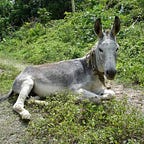The Remarkable Journey of Otis Davis, The Man Who Outpaced the Flying Sikh
Milkha Singh, popularly referred to as the Flying Sikh, is a legend in his own right. He is one of the precious few athletes from India who have made their presence felt on the international stage. His story is one of pure grit, determination and persevering against all odds. A journey that saw him overcome the horrors of the Indo-Pak partition in his childhood to competing at the world stage in the 1960 Rome Olympics. His narrow miss, by 1/10th of a second at a podium finish at the 1960 Olympics 400 metres dash, after more than 50 years, still manages to rekindle those latent feelings of national heartbreak that India was plunged into, on that fateful day of September 6, 1960.
In a country starved of sporting heroes, much more so in athletics, it’s no surprise that Milkha Singh’s life and exploits have been captured in detail in the Indian media. The most recent instalment of them being Bhaag Milkha Bhaag, a brilliant adaptation of Milkha’s life for the silver screen. The hard-work, discipline and the mental demons that Milkha Singh had to overcome, evokes only awe and respect. However, have you ever wondered about the man who actually won the Olympic gold in that race? Turns out that his story is also as much remarkable, if not more, than Milkha’s.
Otis Davis, the man who won the gold at the 1960 Rome Olympics 400 meters, was a late starter in every sense of the word, having taken up professional athletics only at the age of 26 in 1958. The fact that he grabbed the top spot on the podium, at the Olympics no less, just two years later in 1960, almost defies any reasonable explanation. Some people are maybe, indeed, born to win. Otis Davis, was probably one of those.
Otis Davis, growing up in a racially segregated United States, had his own fair share of obstacles to overcome before he became the world-beating champion that he did. He served for four years in the US Air Force before joining the University of Oregon on a basketball scholarship. It is here that Otis Davis was spotted by Bill Bowerman (yes, of the Nike fame), who tried him first in high jump and long jump before settling on sprint. However, I think, even Bill Bowerman wouldn’t have imagined that Otis could become an Olympic gold medallist in just a couple of years of taking up track and field.
Having run the 400 meters just nine times before the Rome Olympics, one might imagine that Otis Davis was a little low on practice. In fact, Otis barely qualified for the 1960 Olympics, placing third in the trials. Fourth place and he wouldn’t have even made to the Olympics team. Even coming into the race, Carl Kaufmann from Germany was the favorite to win the race, having set the European record in 400 metres just before the Olympics. However, none of that mattered on the race day as Otis squeezed past Kaufmann in a nail-biting photo finish that is still a subject of scrutiny after all these years. In a race that could get as close as it possibly could, Kaufmann lunged towards the finish line in a last-ditch attempt to get past Otis. However, as the famous photo-finish picture shows, it was only Kaufmann’s head that managed to get past Otis. But it was Otis’ torso that was ahead and that decided the race’s winner. Not to mention that Otis (along with Kaufmann) became the first two athletes to breach the 45 seconds mark in 400 metres finishing the race in 44.9 seconds.
Two days later, Otis had another showdown with Kaufmann in the 4 * 400 metres relay race. Otis stamped his authority yet again, steering his team to yet another golden podium finish.
While Milkha’s life and story is inspiring in its own right, it’s interesting to see how a late starter to athletics like Otis Davis still managed to dominate the stage at Olympics.
As Otis Davis himself put it, it was probably just meant to be. It was his destiny.
